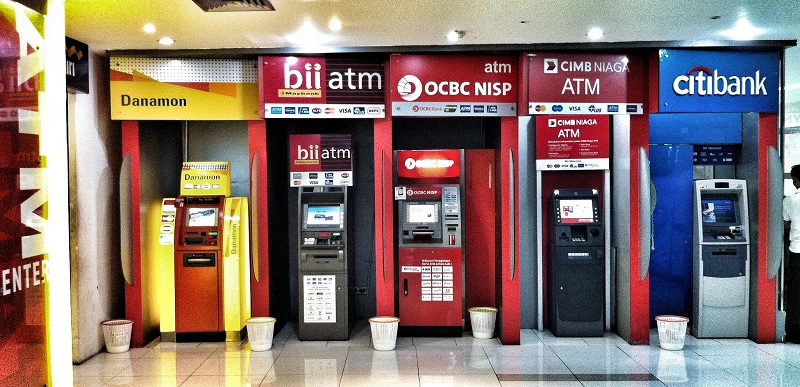ATTENTION AND INSTRUCTIONS BEFORE ON THE ROAD TO STUDY ANYWHERE
Studying abroad is a common dream of most young people who want to develop themselves on a global level. Many students and students preparing to study abroad feel very worried about independent living in a strange and confused country, not knowing what to equip. If you've "fallen in love" with this dream, the following is never "superfluous"!

1. Before you leave
Sometimes, it is a headache for international students to consider what is and does not bring. Usually for the luggage of international students, they will encounter 3 confused situations:
Type 1: Absolutely necessary, can not help but bring
Type 2: Necessary and also very necessary
Type 3: Bring it heavy, not bring it unfortunately
Due to the limited amount of luggage, different conditions between foreign countries and Vietnam and countless aviation laws have led many people to be "half-crying and half-crying". The following are things to note that will help your luggage for studying abroad:
1.1 What to bring?
1.1.1 Finance
Bring a large amount of money from your country, depending on whether you have paid for accommodation or not. You can use a credit card to pay for goods, school fees, insurance costs. insurance, air tickets, medical treatment (in cases not covered by health insurance), buying movie tickets, car rental, etc. When there is a sudden lack of progress, you can use your credit card to withdraw money. Automated (ATM - Automatic Teller Machine) is everywhere. The two most popular types, VISA and MASTER CARD, are now available at some Vietnamese banks such as ABBANK, ACB, and VCB ... You can contact us to find out about the procedures and fill the card issue. Note that credit card interest rates are quite high, so use with control.
Money divided into at least 3 places, a little in person. It is best to have a cash on hand to spend on initial items: pots, pans, clothes, blankets, pillows ... and even small change for vehicles such as subway, bus ... because in these cases they rarely use credit cards
1.1.2 Essential supplies
Clothes: including anti-cold clothes and summer clothes. For summer clothes such as t-shirts, T-shirts, jeans ... you can bring some and buy more abroad because the price of this item is quite cheap, not too hard to find and sale-off.
Necessities: such as brushes, toothpaste, towels, blankets, moisturizing lipstick, anti-cracking creams, needles ... should only wear a little. After a period of getting used to life you can easily shop these items.
Shoes: you should bring about 1 pair of sandals, sports shoes, clip sandals and socks. Choose pairs that are familiar, not inflated feet, convenient for walking. In addition, a pair of Western shoes or high heels for the school party is also necessary if you are new to choosing shoes abroad.
Medication: In the early days of arrival due to changing environment and weather, your health will not be stable and it is easy to get infected. Bring some necessary medicines such as abdominal pain, pain relief, vitamins, colds, stomach medicine…
Electronic appliances: rice cookers, CD players, laptops, cameras, mobile phones (with important phone numbers), dictionaries, hair dryers, irons, shavers, etc.
Stationery, backpack (buy 25 liter capacity is medium)
Wristwatch, alarm clock, charger, voltage switch (depending on host country).
Food for the first week: the first time when you are new to indigenous food, food brought from Vietnam, especially instant noodles, will be your "savior"
1.1.3 Required documents
Passport (passport), Student Visa and airline tickets are valid including a student visa.
Admissions letter, scholarship notification letter, tuition receipt.
Letter from the embassy.
Original / certified copy, transcript / transcript, diploma, birth certificate, photo 4 × 6.
Identification documents such as a driver's license or ID card (should be translated into English.
Health monitoring book, medical records (if any).

1.1.4 Information
Information about the region to live in: climate conditions, transportation, currency denominations, prices, banks, health insurance, laws and social status (things to do with those taboos should be avoided) and memorize common phrases.
For example, in Singapore, you can rest assured that your tap water is clean and qualified to drink 100%. However, the sale of chewing gum will be subject to administrative penalties
Information about the local school: the time, the course, the location of the school (how far from where you reside and can be moved by any means), the school's clubs ...
1.1.5 Psychology, ideology, personal situation
Need to ensure health to be able to adapt to foreign countries (pay attention to serious illnesses such as heart, asthma, weather allergies, ...). At the same time must examine and treat eyes and teeth thoroughly before traveling, bring myopia glasses if you are nearsighted
Do not think that studying abroad is completely convenient, happy, and the country to study abroad is heaven or a promised land. Life and study everywhere have their own difficulties. To survive and succeed, you must know how to solve those problems on all issues such as money, culture shock, loneliness, study, affection, employment ...
You must learn how to solve your own problems, or share them with your parents, siblings or other international students because they will give advice, how to solve logical problems.
1.2 What should not be brought?
Guns (even toy guns) and other weapons such as knives, scissors, cannons, lighters, etc. Any item or item that is not normally considered a dangerous item but may become dangerous depending on the purpose of use such as stone grip, razor, scissors of all kinds, pliers hammer ...
Stimulants and some medicines are not intended to cure illnesses
Some special liquids such as perfumes, shampoos ... because these will be retained by the inspector through a scanner
There are also a number of things that each country in the department prohibits, for example, Singapore prohibits animal fur fashion; Australia bans bone tools, shells, animal leather crafts, and Canada to carry fresh items ...
2.On board:
2.1 Things to keep in mind before boarding
Passport photo + visa leave for family.
Give your family your Australian contacts.
Passport, air ticket, money, admission letter, important documents, 1 pen, personal medicine, oil, brush, toothpaste, 1 light jacket, 1 suit (in case of action) luggage lost), camera in hand luggage
Close the items that need to be declared with Hai Quan in a separate bag.
Put in your baggage two copies of the front of your passport and visa
Lock the bags and attach them to the paper with your name, address and contact phone number overseas
Note: You should choose a suitcase with wheels, moderate size so you can carry it yourself every time when passing through the scanner.
2.2 Guide customs clearance procedures
Holding your passport hand (should have a plastic cover on the outside) go to the gate "International Departure Station"
Check in baggage and get: "Boarding pass" (boarding pass) from customs officers.
Pass through the hand luggage check port and check people. The customs officer will check the security and stamp the exit on your passport.
You go to the gate with the number (eg gate no.8) mentioned on the "Boarding pass" and wait until it is almost time to board, then enter the port showing "Boarding pass" to board the plane. Remember to sit on the correct seat number listed on the "Boarding pass".
Note:
Do not keep fossils and luggage for strangers, nor ask strangers to look at your luggage, to prevent those who want to flee the country.
If this is your first flight, you should pay attention to the instructions on the instruction board
All baggage should be checked by Checking staff to ensure compliance
It is advisable to preserve the ticket control baggage in case of risk.

3. Upon arrival
3.1 At foreign airports:
As soon as you get to the airport, you need to do the following:
You need to complete the Entry Card (issued on board).
At the immigration checkpoint, you will present your passport, a Japanese passport, sometimes even a letter of admission. After checking, all documents are returned except for entry cards.
You need to get your luggage (lying on the carousel), then continue towards the exit (Exit). If you have nothing to declare, exit by the door with the word "Exit", and if you have goods to declare, you must follow the exit with the word "Exit". In both cases, you always have your manifest ready for customs clearance
Note:
Before leaving the airport in each city, be sure to get a map of the directions for travel around the city near the exit.
In foreign airports, there are duty-free shops, the products displayed here are guaranteed not to be fake or tax-free. When buying, you need to show your passport.
You can exchange money at the Money Counter (Currency Changers / Currency Exchange) at the airport or the legal money exchange (Licensed Money Changer) at the mall or any bank.
If you still cannot arrange accommodation, the guide of the host country at the airport will help you arrange accommodation at the hotel.
Also do not forget:
Look for signs of the person picking up and waiting patiently at the airport as instructed.
You need to be mentally prepared for unexpected situations, such as when the meeting is still not possible, you should:
Call the emergency number as instructed, notify the school that you have arrived and where you are waiting at the airport, and follow the instructions of the school. You can make free phone calls at the airport. However, this requires you to hear and speak English relatively.
If you cannot be reached by phone, you will take a taxi to the accommodation at the address provided to you before you leave. Should take a taxi in the airport area rather than outside taxi.
Buy a SIM card to use with your mobile phone. In addition, you should also buy phone cards to make international calls cheaper (you can buy them right at the airport).
Open a bank account (instructions from the school)
Immediately contact parents or relatives when reporting a safe place.
Present at the International Student Office of the school as soon as you arrive (within 7 days after arrival if it is not the day of admission, or the next day if you have arrived at the admission date) and to confirm the information details of the curriculum and other activities such as orientation programs. Remember to bring your passport and other relevant documents with you when you go. To obtain a Visa, you need to submit a Letter of Acceptance, an original passport, a white Immigration slip, health examination results, student visa fee, form 16.
Sign up to attend student-led information sessions.
Get a student card and discount card when using public transport, when buying a ticket to return to Vietnam or fly domestically.
3.2 Learning:
As soon as you go abroad, do not forget:
Schools have 1 opening day for all faculties / classes. On this day, you will register for admission procedures, recommend the faculty / class and know the schedule.
Go to the correct campus on your admission letter and bring your papers to present (offer, eCOE, visa, photo 4 × 6).
Receive instructions on how to make health insurance (OSHC), student ID cards, library cards, open a bank account, or contact student support departments.
Things to prepare for learning:
Come to class on time
Sit above the class
Take notes, skim through topics and summarize the lesson
Do not hesitate to ask the teacher if you do not understand the lesson
Should speak in class and ask questions
Talk to the teacher right away when you have problems in the classroom
Prepare lesson before class
Study steadily, do not accumulate, wait until the last minute to learn
There is a separate study space. When learning to turn off the TV, radio
Must do assignments and assigned work on time
Reasonable allocation of time for studying, playing, resting and sleeping
Make friends to improve your English and learning experience

3.3 Integrating life
Familiarize yourself with overseas forms such as: public transport, banking, visa extension, health insurance benefits, dormitory or homestay regulations at your residence.
Especially with homestay - a common form of residence for international students, you should note the following:
Get on well:
Attend family conversations and activities, respect family routine. Remember to "join customary".
You should offer to help with household chores.
Always be careful with furniture / property in the house, remember to ask for permission when you want to invite friends to your home and remember to pay for your own expenses: phone, internet ...
Hang out:
Ask your family for permission before going out, telling them where you are going, whom and when to return, and return before agreed. You should call if you are late.
Do not turn off your mobile phone.
Do not give your personal information to strangers.
Lock your doors and windows carefully before going out.
Overnight Overnight:
Must have the consent of the host family.
Summer travel: You must fill out a travel request form and get approval from your home school and family.
Rent / room:
When you first arrive, pay the rent / room for 2 weeks
Pay rent on time, every 2 weeks
Enter the payment deadline in the diary book
When you are on vacation, you still pay a portion of the rent / room.
Other things to keep in mind:
Always bring your address, school phone number, and accommodation to the lost room in the early days.
At first you may not have heard and understood English when communicating with native speakers, do not worry. Remember, nobody laughs there when you are not good at speaking English. Outside of English classes, try to practice at class, school, self-study center, practice listening to television, reading newspapers.
If you need help, you should proactively seek help by asking for information at a school, a homestay… Remember “The pathway in the mouth” no one will ask or help you if you don't come up language.
Most importantly, you must actively talk, communicate with teachers, classmates who are international or native students to practice English. If you attend the English class every day but refuse to open your mouth to speak in English with anyone, you will not be able to improve. Remember, in Australia no one laughs at you when your English is not good.
Do not go home late in the evening.
Do not stay in deserted places, lack of light to avoid trouble, you should not lend nor borrow anyone's money.
Always try to think positively and optimistically to overcome initial difficulties